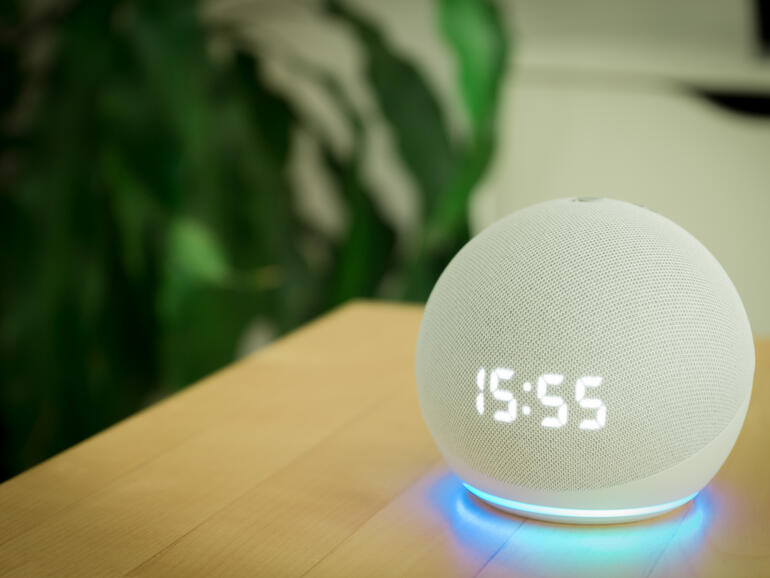At Amazon’s Alexa Live developers’ event last month, the agent’s steward took up the mantle of improving skill discovery. A perennial challenge in many marketplaces and an exceptional bane of many smartphone app developers trying to raise their profiles, it has proven particularly nettlesome for Alexa skills given Alexa’s traditional reliance on audio-only devices that can provide only so much context.
But that’s changing as Alexa spreads its multimodal wings, building out its presence on displays through Echo Show devices that are growing faster than smart speakers. Promoting skills on these displays is but one way that Amazon is trying to raise the profiles of third-party skills as it creates more opportunities for skill-based commerce, including paid skills and skills that enable the sale of physical and digital goods.
In contrast to the dawn of the iPhone’s app store in 2008, though, that opened the floodgates for app-based commerce, Amazon is taking a more gradual approach to opening the commercial skill marketplace. With the iPhone, Apple sought to adapt many of the desktop familiarities to a pocket device. There was a launcher with draggable icons that represented what Apple touted as “desktop-class apps” (at least compared to what had come before and yet only now will mobile Safari support extensions). Indeed, at the iPhone’s introduction, Steve Jobs referred to the iPhone’s operating system as simply “OS X”.
But things are different in the world of Alexa. First, it’s unclear how much value a directory of skills, like the one Amazon already hosts, aids in discovery. The directory faces the paradox of being hosted out of context on the web and yet wouldn’t be keeping with the spirit of ambient computing were it available within the Alexa experience.
Second, Alexa skills are overwhelmingly designed for tasks such as activations and transactions as opposed to the prolonged conversations that would be more analogous to an app experience. There’s often not the opportunity to build out the case for them through app store listings awash in screenshots and videos. That said, Amazon has an opportunity to build skill awareness as it focuses more on blending Alexa into third-party apps. This can take place in several ways, including having an Alexa command send info to an app or having it launch an app to offer more options for, say, controlling a connected device.
Third, the most valuable skills for consumers may be the ones they create for themselves. At Alexa Live, Amazon returned to a capability it touted last fall–the ability for consumers to create their own skills by teaching Alexa what they mean by a certain phrase such as, “Let’s start movie night.”
And fourth, a new class of Alexa skills may wind up having little association with Alexa at all. That’s because Amazon is starting to offer Alexa on a white-label basis to a range of companies, with one early example being Verizon with its smart display.
Even if Amazon’s focus doesn’t include revamping its directory into more of a store approach or taking on the arduous challenge of developing one within the Alexa experience, it doesn’t let the company off the hook on some of the app store-related controversies that have pitted Apple versus Epic and Facebook, with Microsoft positioning as a (desktop-only) force for reform. On the other hand, some of the contentious points around app stores, such as the availability of third-party stores or sideloading, seem foreign to the skill ecosystem and are at least partially addressed by Amazon-backed efforts such as the Voice Interoperability Initiative and Matter.
We credit app stores for giving rise the app economy. With the important exception of games, though, much of the value of what had been called the “app economy”–ranging from such popular apps as Netflix, Uber, Instagram, Venmo, and Zoom to a long trail of less popular apps–has revealed itself to really be part of the digital services economy. Some of these services either can’t be accessed by the web or lose flexibility when they are. However, Amazon has interest in making space at Alexa’s table for them all; they not only do they all have potential ties to Alexa skills, but many could drive potential revenue opportunities via AWS.
PREVIOUS AND RELATED CONTENT
Amazon outlines plans for Matter, custom Alexa commands at Alexa Live developers conference
Amazon is set to announce partnerships with other manufacturers that would put Alexa in even more products.
Verizon’s Smart Display is real and responds to ‘Hi, Verizon’
The Amazon Alexa-powered smart speaker is coming later this year.
Now that Alexa is everywhere, it’s time for developers to cash in
Amazon is introducing more than 50 new features for Alexa developers, including a number to monetize their Alexa skills.



